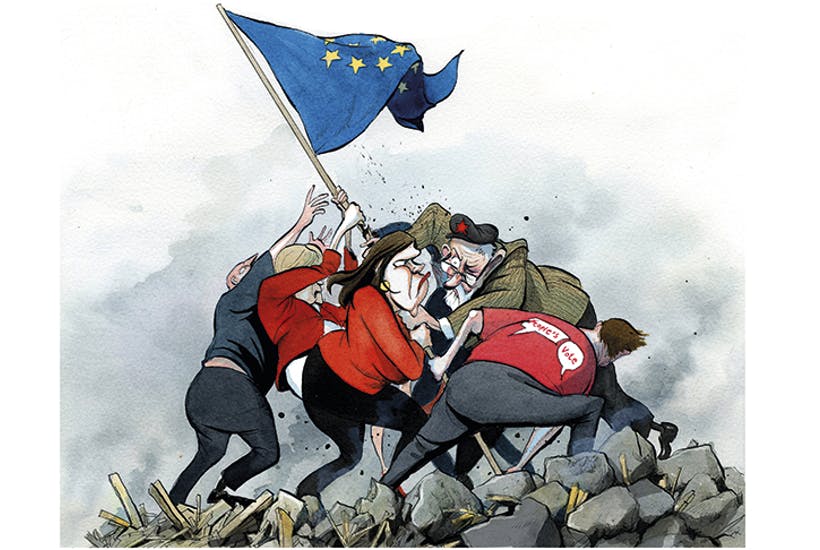Ever since the referendum, the two strongest political forces in Britain have been Leave and Remain. Loyalty to political parties has faded, but feelings about the referendum result are almost stronger now than they were on 23 June 2016. For Remainers, these are tense times: for years, there has been the hope of a second referendum and stopping Brexit. But if the Tories win a majority next month, then the UK will leave the European Union on 31 January and our future relationship with the EU will be negotiated by the man who led the Leave campaign. By the time of the next general election, Brexit will be a settled fact.
If Remainers could organise themselves into a single political force, they would be almost unstoppable: 45 per cent of the public identify as Remainers, easily enough to win a majority under first past the post. Leavers are about 41 per cent, while only 26 per cent of voters describe themselves as Tory and 23 per cent as Labour. A great many Remainers intend to stick together: as Matthew Parris has said, a new group of voters have formed a ‘band of brothers’. The cause will endure for them, long after Brexit.
But the Remain side has been unable to unite behind any one party or leader. This is a particular problem for them now that Boris Johnson is the Tory leader. He has largely succeeded in the mission for which he was elected: to make the Tories into an indisputably Leave party and to crush support for Nigel Farage’s Brexit party. Every Tory candidate is now signed up to leaving the European Union with Boris Johnson’s deal, while the doubters have been rather brutally cast out. An extraordinary 71 per cent of those who backed Brexit in 2016 are now voting Tory. Yet on the Remain side, no party can command the support of half of those who voted to stay in back in 2016.








Comments
Join the debate for just £1 a month
Be part of the conversation with other Spectator readers by getting your first three months for £3.
UNLOCK ACCESS Just £1 a monthAlready a subscriber? Log in